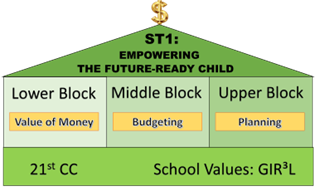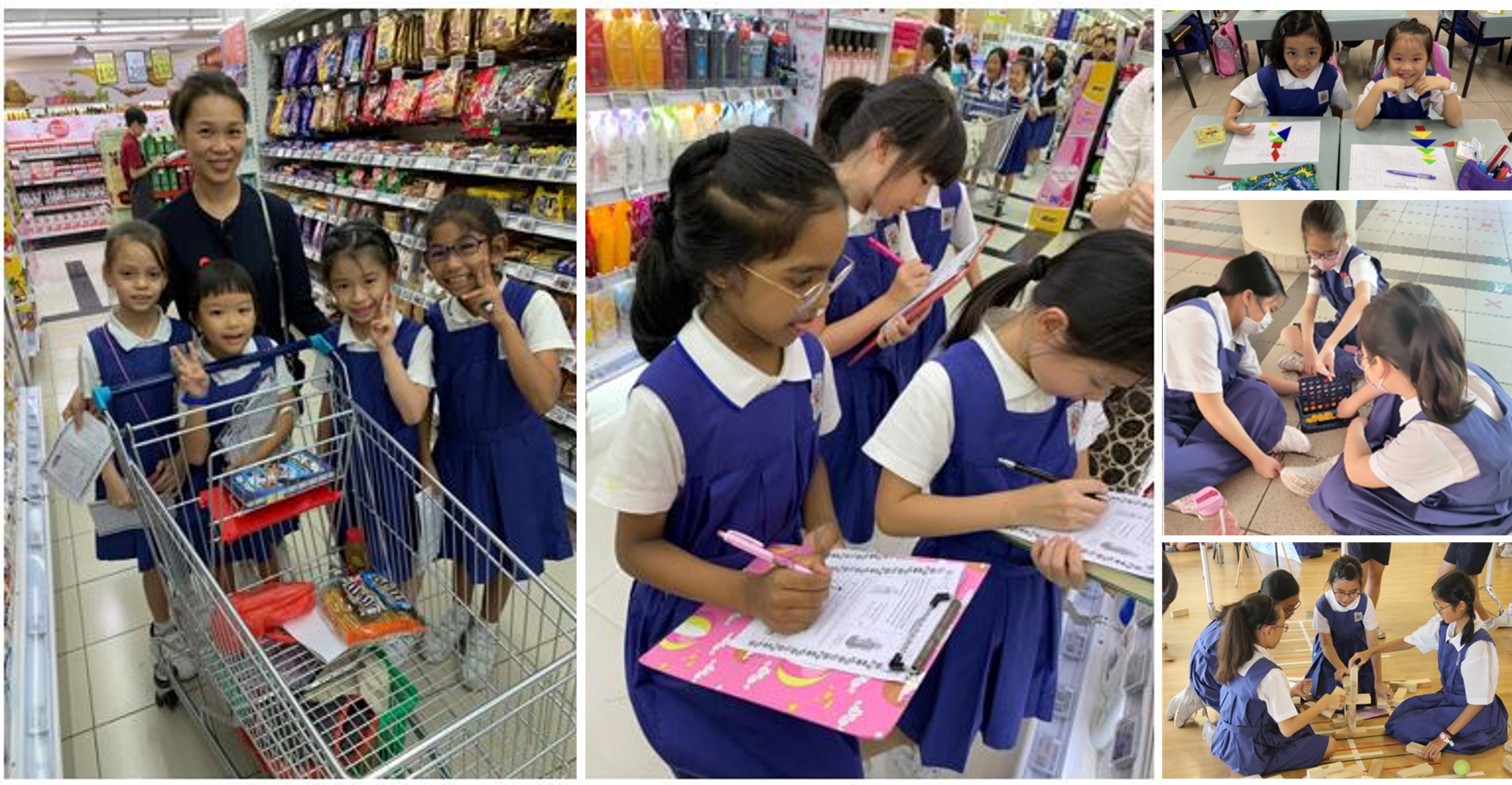Mathematics
Our Vision
We aim to provide stimulating mathematical experiences that will nurture creative, critical, active, independent and future-ready learners with sound reasoning and problem solving skills.
Our Philosophy
“Every Girl can Learn and Achieve in Mathematics given the right environment to stretch her potential”
Mathematical problem solving is central to mathematics learning. Problem solving skills in the mathematics curriculum mirror twenty-first century skills such as creative thinking, communication and critical thinking skills which we would need to equip our students with. The inherent ‘spiral’ nature of the mathematics curriculum will remain an important aspect of mathematics learning in developing our students' problem solving abilities to become future-ready learners.
Curriculum
To develop a strong foundation in Mathematical concepts and skills, the school adopts the Concrete - Pictorial - Abstract approach in the teaching and learning of Mathematics. This pedagogy enables gradual translation of concepts from actual objects to pictures to symbols.
To bring mathematics learning beyond the textbook and beyond the classroom, the school offers Authentic and Experiential Learning to all the girls. Such learning experiences would allow the girls to apply and see the relevance of learning mathematics as well as make connections to what they are learning.
To provide opportunities for our girls to discover, reason and communicate mathematics, our teachers engage the girls through Cooperative and Independent Learning using various strategies and activities. Through such experiences and peer interaction, we hope to develop self-directed learners who are positively confident in mathematics learning.
In addition, ICT is meaningfully infused into lessons for students to explore, collaborate and deepen their learning to equip and develop students with thinking, reasoning, communication, application, and metacognition skills in Mathematics, the school has adopted the Polya Model for Problem Solving. Using the acronym, UPER, we hope to scaffold students’ thinking process in their approach to problem solving.
Working Hand in Hand
Parents can help your child at home by:
Practising number bonds and multiplication tables frequently
Connecting real-life experiences with mathematical topics
Money - Allowing students to use cash to pay for items and getting change
Time - Telling time from an analogue clock
Time - Duration (e.g. use a TV guide)
Measurement - provide opportunities for students to help in the kitchen
Encouraging your child to do quick mental calculations
K-JINGLES (Financial Literacy @ Kellock).

Demonstrate ways to monitor how money is spent and saved.
MATH RECESS @ PLAY
Students have the opportunity to play a variety of mathematics games during recess.P1-P2 GAME BASED PROGRAMMES
P1 & P2 students have the opportunity to train their minds and develop the capacity to think logically, critically and creatively through two game-based programmes - Have Fun with Sudoku & Playing with Tangrams.

